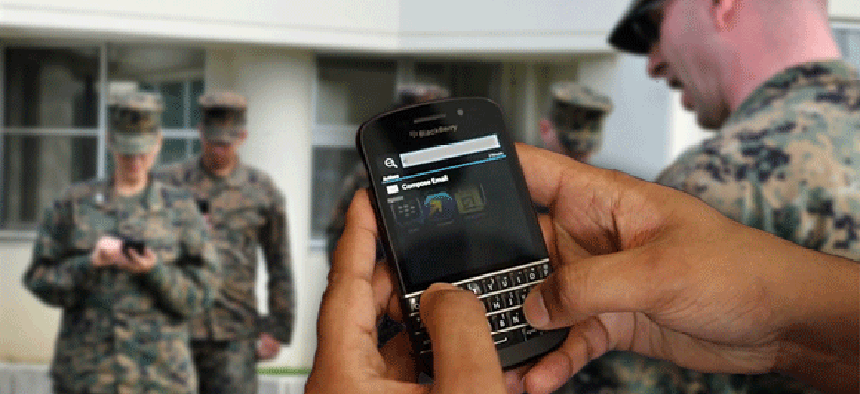DOD's mobile plan still calls for multiple platforms


Connecting state and local government leaders
The department says its management plan calls for supporting multiple devices, despite a report that it would drop BlackBerry for Apple devices.
The Defense Department’s mobile computing plans call for incorporating a variety of mobile platforms, a spokesman said, contrary to a recent report that DOD was moving entirely to iOS devices.
Earlier this week, the website Electronista, citing unnamed sources, reported that the Defense Department would be ordering over 650,000 iOS devices to replace all of its current devices, “following conclusion of the sequester.”
That figure is actually slightly higher than the number of mobile devices the DOD has – just over 600,000 – many of which were probably bought within the last year. And the report was contrary to the Commercial Mobile Device Implementation Plan recently released by DOD. The plan covers strategy and capability goals, but it doesn’t single out any one device either for inclusion or exclusion. Many of the pilot programs that DOD considered to help form the plan used different devices from different manufacturers, including at least one, U.S. Special Operations Command's program, that specifically used BlackBerry devices.
DOD spokesman Lt. Col. Damian Pickart, in response to the report, said the plan signifies inclusion of BlackBerry devices. “The department is aware of recent reporting that asserts it is 'dropping' BlackBerry,” Pickart said. “This reporting is in error. The department recently released its mobility strategy and supporting implementation plan, which clarifies we are moving towards a mobile management capability that supports a variety of devices, to include BlackBerry. As clarified in the recent release of our Commercial Mobile Device Implementation Plan, we are working towards establishing a multi-vendor environment in support of DOD mobility strategy."
Pickart said the department is developing a “mobile device management capability and application store to support approximately 100,000 multivendor devices by February 2014.” Of the over 600,000 devices being used in either operational or pilot environments, 470,000 are BlackBerrys, 41,000 are Apple iOS devices and 8,700 run the Android OS, he said.
BlackBerry also issued a statement saying DOD was testing its new BlackBerry Enterprise Service 10 and the BlackBerry Z10 smart phone. “We are currently working with the Defense Information Systems Agency and anticipate Security Technical Implementation Guides and Security Requirement Guide approval for the BlackBerry Device Service, BlackBerry 10 and BlackBerry PlayBook by early April," the company said.
Electronista is sticking by its original story and its source, despite DOD statements that "it is not from an official DOD source," according to a report in ComputerWorld.
Meanwhile, across the pond, BlackBerry also had to fend off reports that it had failed government security testing in the United Kingdom. The Guardian’s website reported that the CESG (originally Communications-Electronics Security Group), the U.K. national authority for information assurance, had rejected the BlackBerry 10 software in the new Z10 handset.
This was determined to be in error, as CESG quickly released a statement saying, "Discussions with BlackBerry are ongoing about the use of the BlackBerry 10 platform in government. We have not yet performed an evaluation of the security of the platform, but we expect to be issuing Platform Guidance in the summer.”
BlackBerry agreed completely in its official statement: “Media reports alleging that BlackBerry 10 has been ‘rejected’ for U.K. government use are both false and misleading.”
The Guardian has since retracted the original story.
NEXT STORY: Killer app for IPv6? It’s the Internet.




